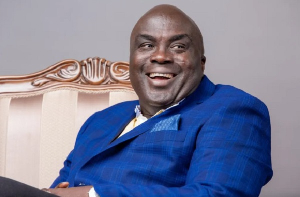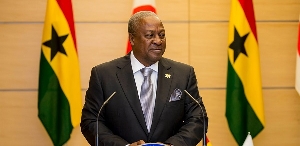Policymakers need to build capacity and sharpen their skills to design policies that will enable countries to restore price stability and design fiscal plans to alleviate the cost of living pressures, Director General of West African Institute for Financial and Economic Management (WAIFEM), Dr. Baba Y. Musa, has said.
Given that countries are experiencing broad-based and sharper-than-expected slowdowns, with inflation higher than seen in several decades, he noted that capacity building for appropriate policies is required.
He made these remarks at the opening session of the WAIFEM and International Monetary Fund’s (IMF) Regional Course on Macroeconomic Diagnostics (MDS) in Accra.
The Deputy Division Chief at International Monetary Fund, Boriana Yontcheva, also noted that while happenings have left some growing and emerging economies stranded, it is necessary to adopt a “more sustainable debt growth path” and develop policies which can promote growth.
“The COVID-19 crisis is a major shock for the entire world, and obviously the world got to a point where it was indispensable to fight COVID-19 and countries spent what they could in order to save lives."
“Now that we are coming out of the crisis, the necessity to rebalance macroeconomic accounts becomes unavoidable. So, it will be essential for countries in Africa and elsewhere to find a way to slowly go back to a more sustainable debt-growth path. This comes through targetted fiscal priorities, but also through policy that promotes growth,” she said.
In a statement read on his behalf, Governor of the Bank of Ghana, Dr. Ernest Addison, echoed the country’s efforts in addressing its economic challenges; adding that participants “can count on WAIFEM and the Institute for Capacity Development (ICD) for building the capacity of technical staff and policymakers in this critical area of macroeconomic management”.
Commenting on the country’s negotiation with the IMF, he stated: “The Monetary Policy Committee recognises the fact that the current condition is sub-optimal and will remain interim until agreements are reached on an IMF-supported programme”.
Dr. Baba Y. Musa noted that the two-week regional course is designed to strengthen participants’ ability to comprehensively assess their countries’ macroeconomic situation: including the current state of fiscal stance, monetary policy; financial stability; and the medium-term prospects of the economy, taking into account the sustainability of public and external debt, possible misalignments of the exchange rate and vulnerabilities arising in the different sectors.
“At the end of the course, participants should be able to analyse potential output, calculate output gaps and diagnose the outlook for the economy. Also, to assess the stance of current fiscal, monetary, exchange rate, financial policies and macro-financial linkages, including through the analysis of financial sector soundness indicators."
“They must also be able to assess the economy’s medium-term prospects, especially the sustainability of public and external debt; and identify possible external and internal economic risks and vulnerabilities to economic growth, and develop policies to address them,” he said.
Click to view details



Business News of Wednesday, 9 November 2022
Source: thebftonline.com

















